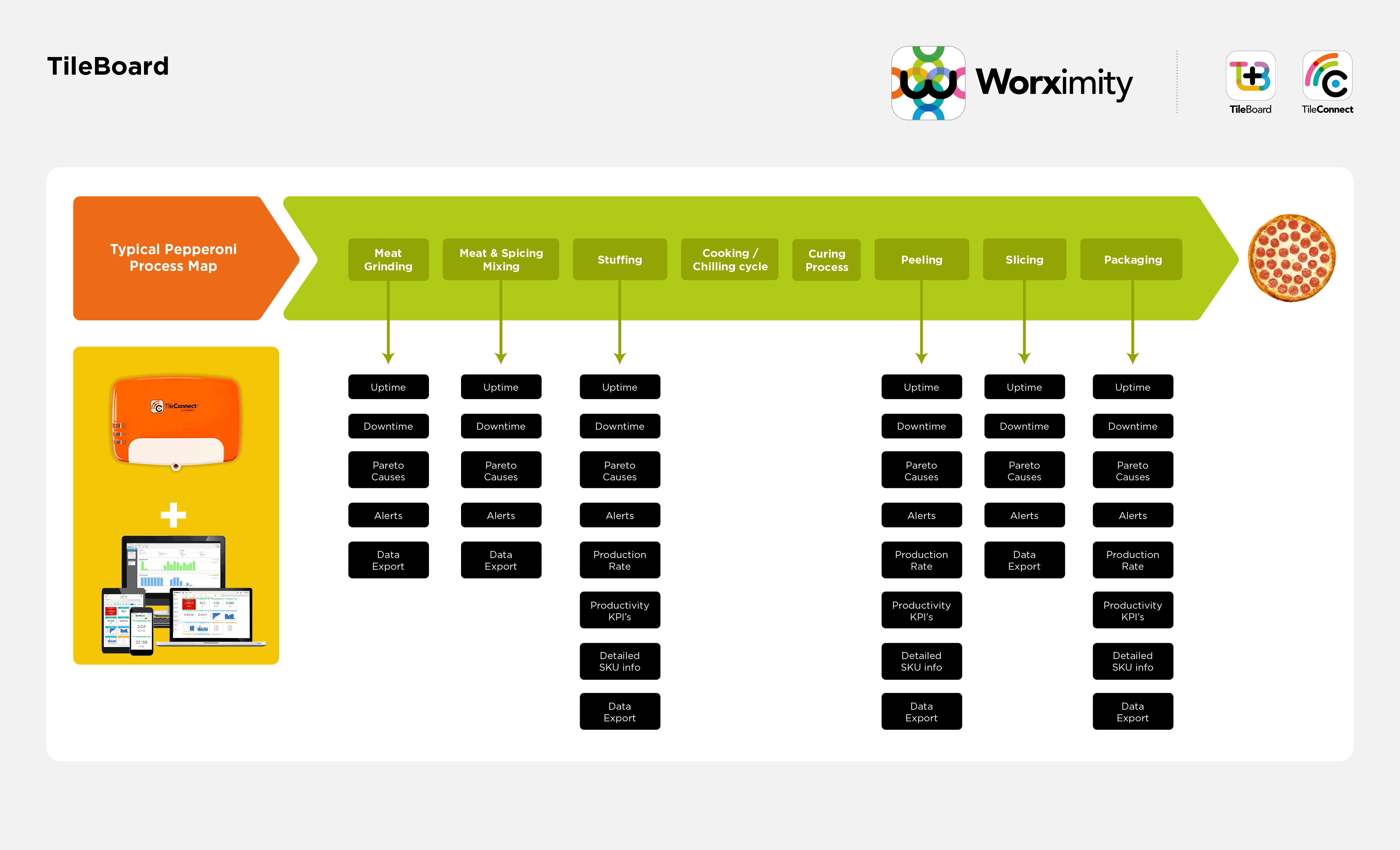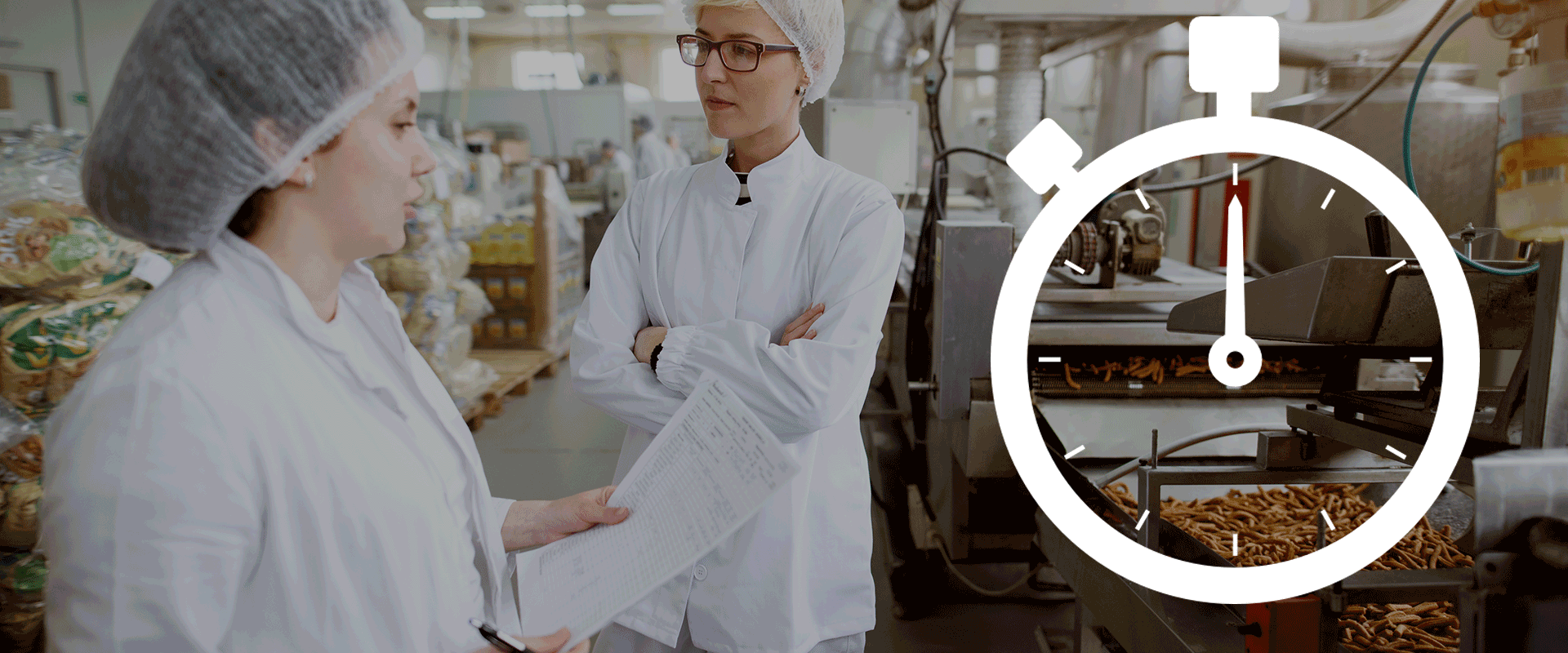In the food industry, there is no role more important than that of manufacturing management. From production scheduling to employee training, manufacturing managers are at the heart of the food factory floor. An efficient manufacturing manager has the ability to competently control the flow of production while ensuring product quality.
Food manufacturing is generally a low margin business, so a food manufacturing business can literally live or die based upon the performance of manufacturing management. To maintain a successful food manufacturing business, a manufacturing manager must accomplish a variety of tasks and be able to adapt to complications quickly and efficiently.
But what makes good manufacturing management?
Below is a list of just a few of the capabilities that an accomplished manufacturing manager should master when overseeing a food factory manufacturing floor. With all of these responsibilities and more, how can manufacturing management keep up? One way is through investing in technology, and in particular advanced manufacturing management technologies such as IIoT and Smart Factory Analytics. Included in each capability is a link to a resource or resource explaining how Smart Factory Analytics can positively impact that area of responsibility.
Production Scheduling:
Production scheduling is the task of determining when operations will take place. Production scheduling factors in the time and due dates of tasks to apply a chronological order and display them in a timeline to be followed. Proper production scheduling has the ability to ensure a fluent production run. The ability to accommodate to changes, such as missing materials, is a key aspect of a properly developed production schedule.
New Business Opportunities for Smart Factories
Overseeing the Production Process:
The responsibility of overseeing the production process is comprised of all tasks discussed in the project planning and production scheduling operations. Not only is the manufacturing manager to verify that each job is being accomplished as planned, but they must also troubleshoot any issues which arise. These issues can vary from increasing lead times to machine malfunctions.
Why Monitoring Productivity is a Game-changer for Food & Beverage Manufacturers
Quality Control:
Product quality is of utmost importance when defining successful production. To maintain quality control, it is the manufacturing manager’s responsibility to oversee each production step to ensure the product is being properly made. If not, the manufacturing manager must take the needed steps to fix the issue while removing any defective products from production.
Introduction to Continuous Improvement Reject and Non-quality
Health and Safety:
Health and safety of workers and customers can be seen as the most important duty of a manufacturing manager. The manufacturing manager is in charge of ensuring that health and safety regulations are met to protect the customers from food contamination as well as establishing a safe work environment for the employees.
Food Industry: True Opportunities Reside in Artificial Intelligence
Equipment Maintenance:
As we’ve noted in other articles, effectively timed maintenance can be a difference maker in ensuring that throughput targets are met and that OEE is maximized.
OEE - Availability, Reliability & Maintainability
Staffing:
It’s becoming ever more challenging for food manufacturing companies to attract and retain qualified workers. Ensuring that the manufacturing floor is fully staffed with a trained and highly productive workforce can be itself a full-time job.
6 HR Tips for a Successful Transition to Industry 4.0
Best Practices:
Manufacturing Management includes implementing best practices for competition which includes Lean Manufacturing and Continuous Improvement.
The role of manufacturing management is a difficult one. It can be made much easier through leveraging new technologies that give real time visibility into manufacturing operations. There is virtually no area of manufacturing management that cannot be improved by having the right insights through factory dashboard technologies like Worximity.















